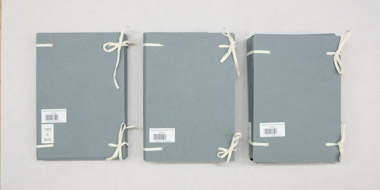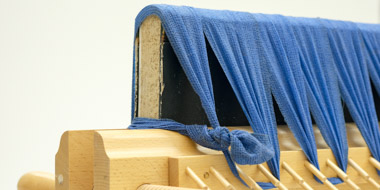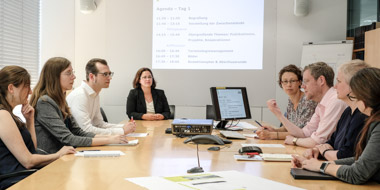Collection preservation: Projects
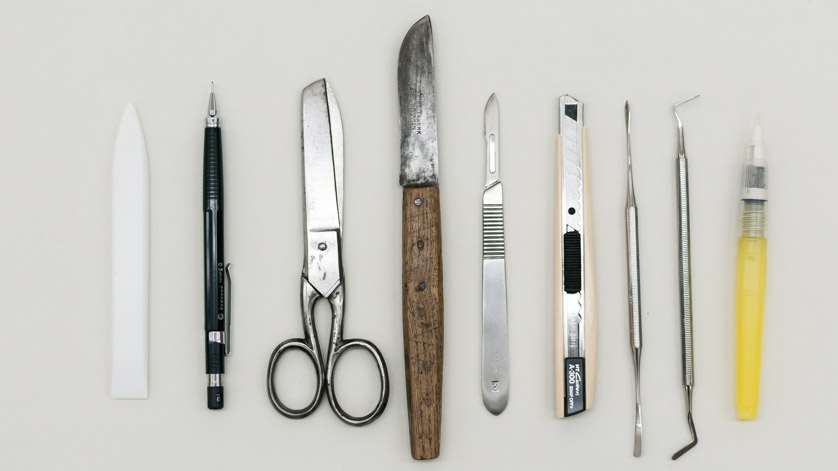
Here we present a number of projects involving the preservation of special artefacts or groups of objects. They show examples of various methods and processes used to preserve collections, the focus here being preventive measures.
Cleaning the Börsenverein's publisher’s catalogues
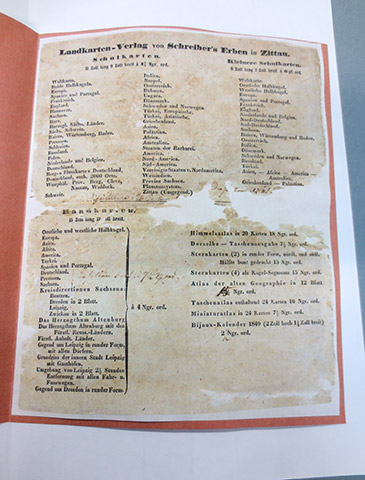
The German National Library has now been able to clean historic publisher’s catalogues in the collection of the German Museum of Books and Writing in Leipzig using resources provided by the Federal Government Commissioner for Culture and the Media.
These publisher’s catalogues are among the items in the Museum’s collection that are most frequently requested for use. However, many of the catalogues were damaged by microbial attack as a result of being removed into unstable housing conditions during construction work in the archive. Their use was consequently severely restricted.
During the project, the catalogues were dry-cleaned page by page using special sponges; the existing archival boxes were also cleaned. Some of the papers are very fragile and could only be cleaned with the utmost care. Pages that had stuck together had to be separated using spatulas.
The collection largely consists of German-language publisher's catalogues dating from the end of the 18th century to 1945. The approximately 30,000 promotional and sales catalogues are not items typically collected by archives and libraries. The brochures of smaller publishing companies or companies that only existed for a short time are what are a unique collection of national and international book and publishing history from the 18th to 20th century from the holdings of the Börsenverein der Deutschen Buchhändler (German Book Traders’ Association).
Project year: 2018
The publisher's catalogues are now once again available for use.
You will find more information about this collection here:
https://www.kek-spk.de/projekt/buecher-ueber-buecher
Cleaning charts and family trees
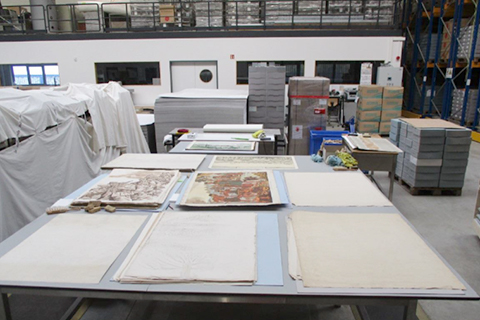 Photo: Zentrum für Bucherhaltung ZFB CC-BY-ND 4.0
Photo: Zentrum für Bucherhaltung ZFB CC-BY-ND 4.0
The project “Cleaning historic charts and family trees” involved the cleaning of 12,000 charts and family trees. The project was funded by the Federal Government Commissioner for Culture and the Media.
The holdings date from 1912 to 1992 and consist of charts and information sheets for classroom use and genealogical charts. It is the only collection of its kind in the German-speaking countries. As they were intended for use in all kinds of schools, the charts and sheets reflect the political thinking of the respective era.
Some of the charts and family trees were badly stained and could therefore only be used to a limited extent. All 12,000 charts were dry-cleaned to make them available again for use and prepare them for example for digitisation.
Project year: 2017
You will find more information about this project here:
https://www.kek-spk.de/projekt/stammbaeume-und-anschauungstafeln-wieder-lesbar
Preservation of the Meckauer suitcase
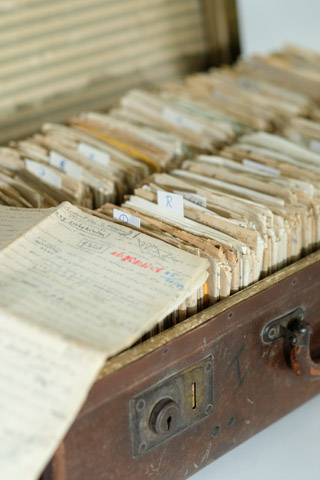
After the Nazis came to power, Walter Meckauer and his family emigrated to Switzerland. From then on, the suitcase in which he kept a great number of his writings accompanied the Meckauers on every stage of their exile: Italy, France, and back to Switzerland. After the war ended, the family went to the USA and returned to Germany in 1952. The German Exile Archive 1933–1945 at the German National Library holds a collection of original testimonies of the Meckauer family which includes this suitcase. The preservation of the suitcase was funded by the Federal Government Commissioner for Culture and Media and the German Federal Cultural Foundation; the suitcase is now part of the permanent exhibition in the German Exile Archive.
All the documents in the suitcase were dry-cleaned, and harmful materials such as adhesive tape were removed. The documents were also deacidified and tears and flaws were repaired. The suitcase itself was dry-cleaned and loose fragments of the paper lining the interior were repaired. During the restoration work, great importance was attached to preserving the appearance of the suitcase with all its traces of use. Creases and scratches were therefore deliberately preserved.
Project year: 2015
https://www.kek-spk.de/projekt/die-konservierung-des-koffers-walter-meckauers
More than 3,000 periodicals again accessible to users
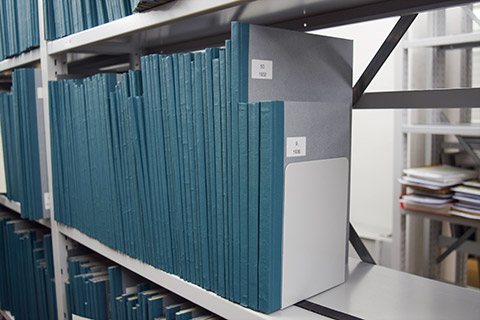
The German National Library has carried out preservation work on more than 3,000 periodicals so that they can again be made accessible to users.
The periodicals, which had covers made of brittle materials containing wood pulp, were severely damaged and in some cases were stored in less than ideal conditions during the war years. The non-historical covers were therefore replaced with covers suitable for preservation purposes so that the periodicals are protected and easier for users to handle.
These periodicals are a unique historical resource: they come from various German cities and were published between 1913 and the 1940s. They consist of rare publications that mostly come from educational institutions such as schools or universities and statistical publications by cities and municipalities which are particularly interesting for research purposes. The measure was subsidised by funds provided by the Minister of State for Culture and the Media, Monika Grütters, as part of the special government culture and media programme for 2019.
https://www.kek-spk.de/projekt/zeit-schriften
Documenting and preserving the condition of the historical book collections
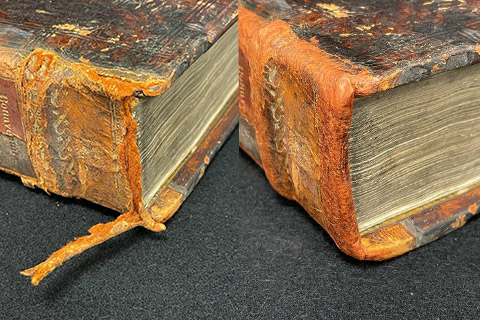 Photo: Paperminz GmbH
Photo: Paperminz GmbH
The aim of the project was to carry out a comprehensive analysis of the collection in order to plan conservation and restoration measures. The condition of more than 6,000 volumes in the historical book collections held by the German Museum of Books and Writing was documented. 522 selected volumes were restored. Various measures, e.g. relating to opening angles, were defined in order to prevent damage during the digitisation process. These measures were funded by the Federal Government Commissioner for Culture and the Media.
Further informationen
Last changes:
05.11.2020
Contact:
s.preuss@dnb.de


